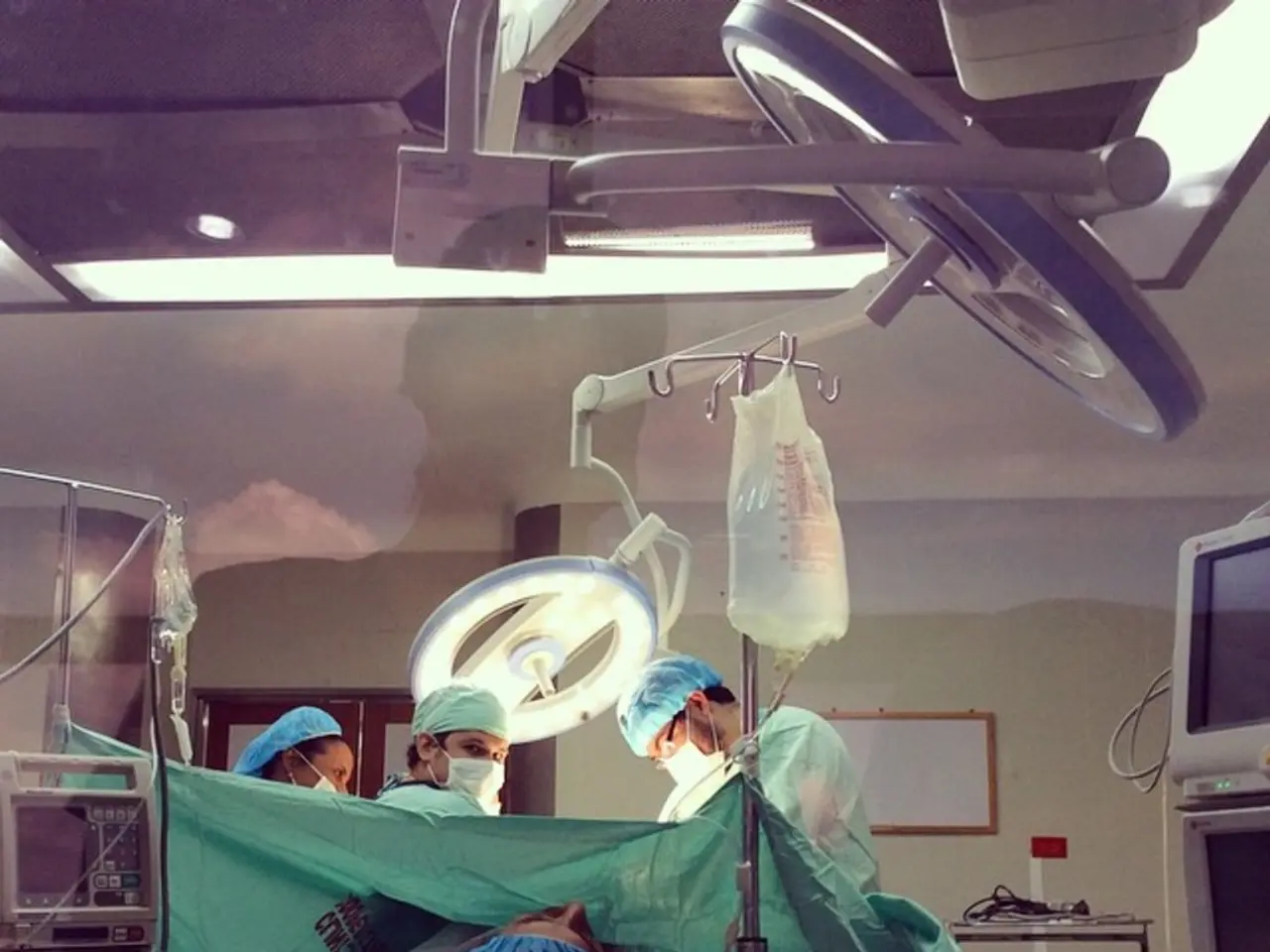Research Thrives in Breast Cancer Services, with Graduate Students at Wilmot Excelling in Their Studies
**Breakthroughs in Breast Cancer Research and Treatment at Wilmot Cancer Institute**
The Wilmot Cancer Institute in Rochester is at the forefront of innovative research and treatment for breast cancer, as highlighted in the latest edition of Dialogue (Vol 1, 2023). This prestigious institution is making significant strides in the fight against breast cancer, thanks to a combination of cutting-edge technology, collaborative research, and a commitment to understanding community needs.
One of the key areas of focus is the development of new cell and gene therapies for cancer, including potential applications for solid-tumor cancers like breast cancer. The Wilmot Cancer Institute is part of the Empire State Cellular Therapy Consortium, a collaboration aimed at accelerating the development of these therapies. This collaboration could lead to increased participation in clinical trials and access to innovative treatments.
Innovative bench science is also a cornerstone of the Institute's research efforts. For instance, the Breast Cancer Coalition of Rochester has been actively supporting research in the area, with awards going to researchers like Fatemeh Alimohammadi, who is studying glutathione-related dipeptide metabolism in triple-negative breast cancer. Another critical area of research is understanding tumor dormancy to reduce metastatic relapse, a significant contributor to breast cancer mortality.
The Institute's work extends beyond the lab and clinic. For example, it collaborates with community groups to reshape yoga studies for breast cancer survivors, incorporating cultural references suitable for Rochester's Black community. This approach underscores the Institute's commitment to making research and treatment accessible and relevant to all.
The National Institutes of Health have endorsed Wilmot's approach to research, granting millions of dollars recently. This funding will support the Institute's efforts to continue making meaningful strides against cancer.
The Institute's success is also due in part to its team approach. From graduate students with a special interest in cancer, like Zachary Sechrist, whose mother faced breast cancer at a young age, to the dedicated professionals in the clinic and laboratory, every role is crucial. Sechrist emphasises the importance of every role in the Wilmot Cancer Institute environment, stating that no role is small.
One area where this teamwork is evident is in the use of new technology in the research for breast cancer treatments. For example, cooling caps are being used to prevent hair loss during chemotherapy by constricting blood vessels in the scalp. This technology, while not specifically mentioned in the search results for Wilmot Cancer Institute, is a testament to the Institute's commitment to improving the lives of breast cancer patients.
In conclusion, while specific details about recent breakthroughs at Wilmot Cancer Institute are not explicitly mentioned in the available search results, there are several significant advancements in clinical trials, technology, and innovative research being supported by various funding initiatives in the region. The Institute's collaborative approach, commitment to community, and focus on understanding the root causes of breast cancer and its spread promise to continue driving progress in the fight against this disease.
- The Wilmot Cancer Institute, at the forefront of innovative breast cancer research, has been developing new cell and gene therapies, including potential applications for solid-tumor cancers like breast cancer, through its collaboration with the Empire State Cellular Therapy Consortium, which could lead to increased participation in clinical trials and access to innovative treatments.
- The Institute's research efforts also involve significant advancements in science, as demonstrated by the study of glutathione-related dipeptide metabolism in triple-negative breast cancer by Fatemeh Alimohammadi, focusing on understanding tumor dormancy to reduce metastatic relapse.
- Recognizing the importance of health-and-wellness, not only for breast cancer patients but also women's health in general, Wilmot Cancer Institute collaborates with community groups to make research and treatment relevant and accessible, such as reshaping yoga studies for breast cancer survivors, incorporating cultural references suitable for Rochester's Black community.




